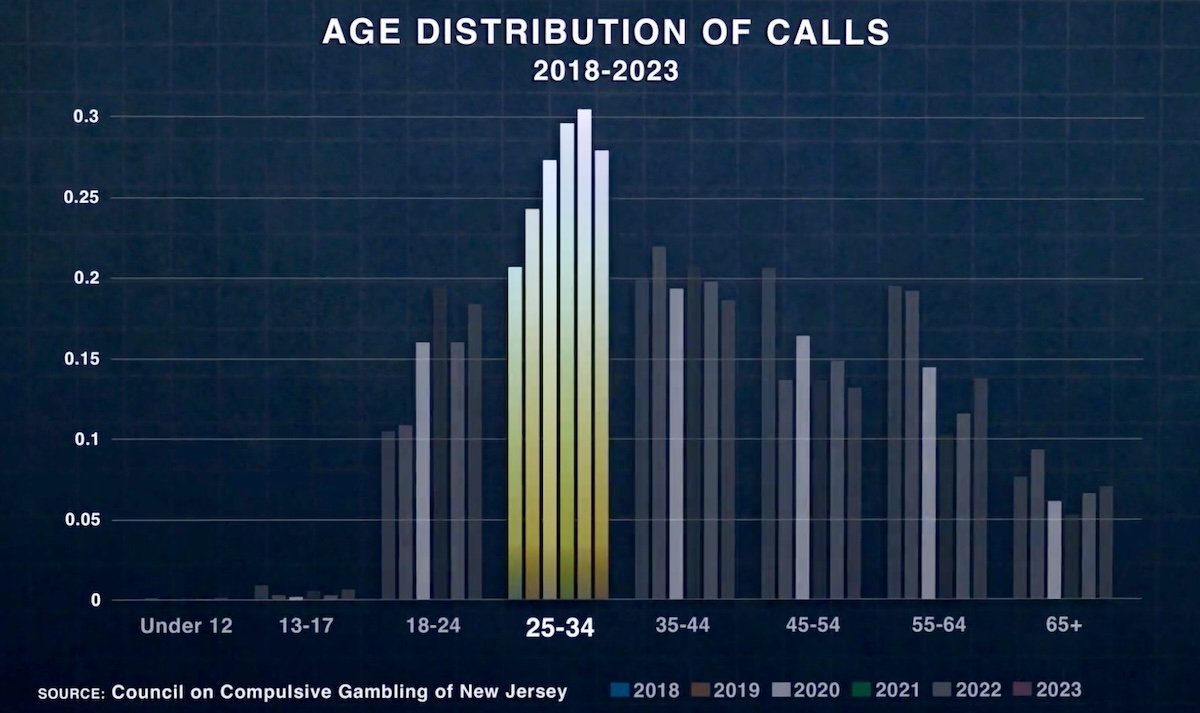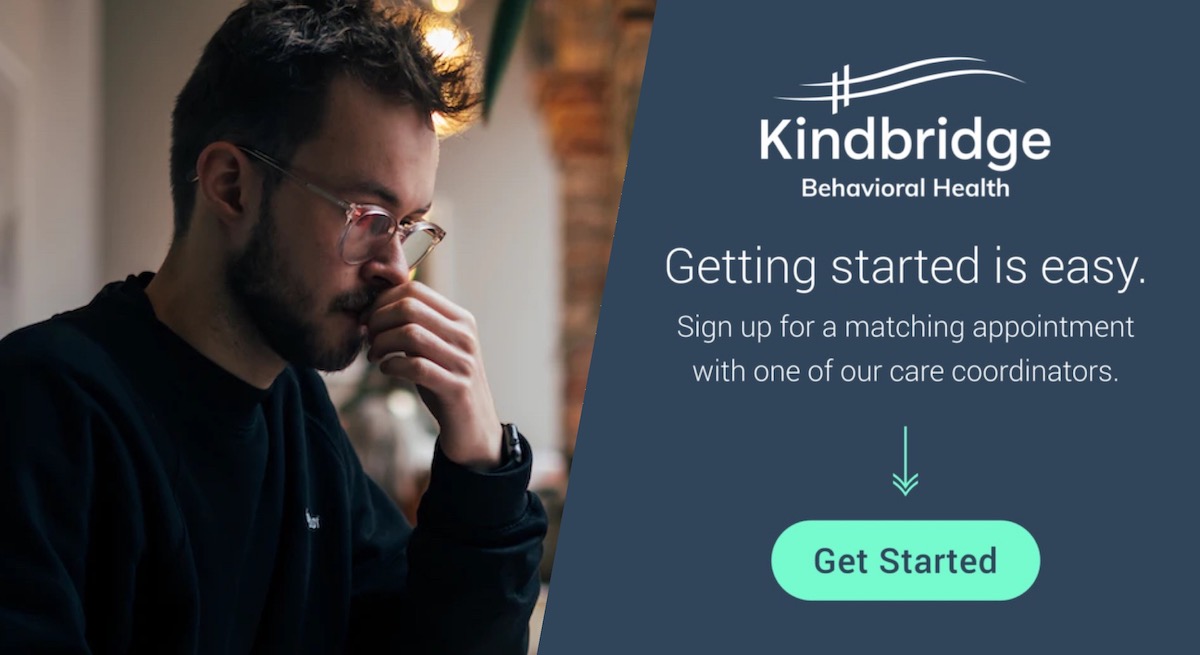Evidence has made it very clear that since the U.S. Supreme Court removed the federal ban on sports betting in 2018, cases of problem gambling have risen. Gambling addiction helpline calls across the country have increased at a record pace, with data showing that young American males between the ages of 25-34 are being threatened the most.

It’s not just the legalization of sports betting that has sparked a new generation of gambling addicts, but its digital transformation. Smartphones enable sports bettors to place wagers on any game or event, from anywhere, and at anytime. Moreover, operators are leveraging machine learning and artificial intelligence (AI) in player retention strategies. They track user behavior to tailor push-notification campaigns to reengage with a player by enticing them with reload bonuses, and to win-back those who have taken a time-out from gambling. Digital transformation is a big part of why the demographic of the gambling addict has shifted to young males, even teenagers. In a recent Men’s Health survey, 76% of respondents indicated that they bet through an app or website, with 67% stating that they bet more since using these online platforms.
In the rapidly expanding landscape of online sports betting, the American Gaming Association (AGA) is navigating the complexities of creating a legal market with a focus on swift implementation. This strategy, aimed at legitimizing the sector, does not initially prioritize comprehensive consumer protections, suggesting that the onus for developing these safeguards could eventually shift to legislators and policymakers. These authorities may find themselves crafting regulations and legislation to enforce stricter oversight and provide resources for addressing problem gambling that arises as the market matures.
The AGA’s Responsible Gaming Code of Conduct declares a dedication to integrating responsible gaming within the industry’s daily practices. Nonetheless, critical assessments, including investigative reports, have sparked discussions about how well the AGA’s commitments align with the practical challenges and health implications of online betting. As the AGA aims to expand the market, there’s a noticeable need for a broader engagement with gambling-related harms.
The AGA’s hesitancy to support initiatives like the Gambling Addiction Recovery, Investment, and Treatment (GRIT) Act (view more below) underscores the tension between industry growth and the immediate implementation of protective measures for consumers. This stance may indirectly prompt more definitive governmental action to ensure consumer safety keeps pace with the rapid development of the sports betting industry.
The idea that problem gambling becomes more visible primarily through the legalization of betting fails to fully account for the role of aggressive marketing techniques. The industry’s reliance on widespread advertising, enticing bonuses, “no risk” bets, and promotions, amplified by AI technologies designed to engage users, plays a significant role in the increase of individuals seeking help for gambling issues. This approach significantly differs from the more subdued tactics of the illegal betting market, which lacks the ability to advertise broadly during major events and prime-time television.
This situation highlights a critical challenge facing the industry: the need for a proactive, balanced approach to consumer protection that can evolve in tandem with market growth. By integrating such measures from the beginning, the industry can ensure its sustainability and maintain public trust, avoiding the need for potentially restrictive future interventions to address gambling-related concerns.
Before leaving you to read further, please watch the video below for the AGA President’s response to the large body of evidence regarding online gaming from a recent 60-Minutes exposé on the sports betting crisis in America:
If vulnerable Americans can’t look to the AGA for assistance against addiction, much less Responsible Gaming, where can they go? Although there are a number of hurdles to overcome, tides are slowly turning in the industry to provide greater access to problem gambling support.
Where Sports Betting Addicts Can Turn to for Help in 2024 and Beyond
State Programs
At the moment, there are no federal programs in place to support problem gamblers. The GRIT Act mentioned above seeks to change that by doing the following:
- Set aside 50% of the federal sports excise tax revenue for gambling addiction treatment and research.
- Authorize spending for 10 years and require the Secretary of Health and Human Services to submit a report to Congress on the effectiveness of the program within three years of passage.
- Not increase taxes on Americans; it simply sets aside a funding stream for problem gambling treatment and research that will continue to increase as online sports wagering becomes more prominent.
- Not increase government bureaucracy, but rather utilizes existing HHS programs and procedures.
You can learn more about GRIT on the National Council on Problem Gambling website here.
Until a federal program is in place, problem gamblers must look towards state programs for support. The NCPG provides links to state funded resources here. In each state, there will be a council on problem gambling for residents to reach out to. For instance, gambling addicts in Alabama could contact the Alabama Council on Compulsive Gambling, and so forth.
Stay tuned to our Problem Gambling News resource center as we provide updates on GRIT and other federal funded programs that may come down the pipe.
Sports Betting Operators
If the AGA won’t step up, can problem gamblers expect any different from the operators they use to bet on sports and play casino games? As alluded to above, tides are turning in the industry and a select few operators are indeed pledging their commitment to player health and wellness. Recently, DraftKings (view here) and BetMGM (view here) have joined forces with Kindbridge Behavioral Health to provide greater access online counseling for problem gamblers in select states. With the call for other operators to take more responsibility, we expect more to join the fold of this exciting and much-needing initiative. Stay tuned to our Problem Gambling News resource center as we provide updates.
Employers
Organizations from a variety of industries are also feeling the impacts of problem gambling as it compromises staff and stakeholders. As a result, some of these organizations are investing in mental and behavioral health support programs for employees. Inquire with your employer’s HR department or union rep (as applicable) to find out of there is coverage for mental/behavioral health (which may be applied to problem gambling counseling) and reduce the cost of getting help.
Kindbridge Behavioral Health
There is a reason that states such as Colorado in addition to sports betting operators and traditional organizations choose to work with Kindbridge Behavioral Health. We are America’s preeminent online resource for gambling disorder support. We offer powerful online and tele-health counseling services dedicated specifically to the treatment of gambling addiction. We have options available for individuals, couples, families, and entire organizations. If problem gambling has taken ahold of your life and livelihood in any shape or form, Kindbridge offers a way out. Contact us below to get started.
Get Immediate and Effective Problem Gambling Support
CALL +1 (877) 426-4258
OR



